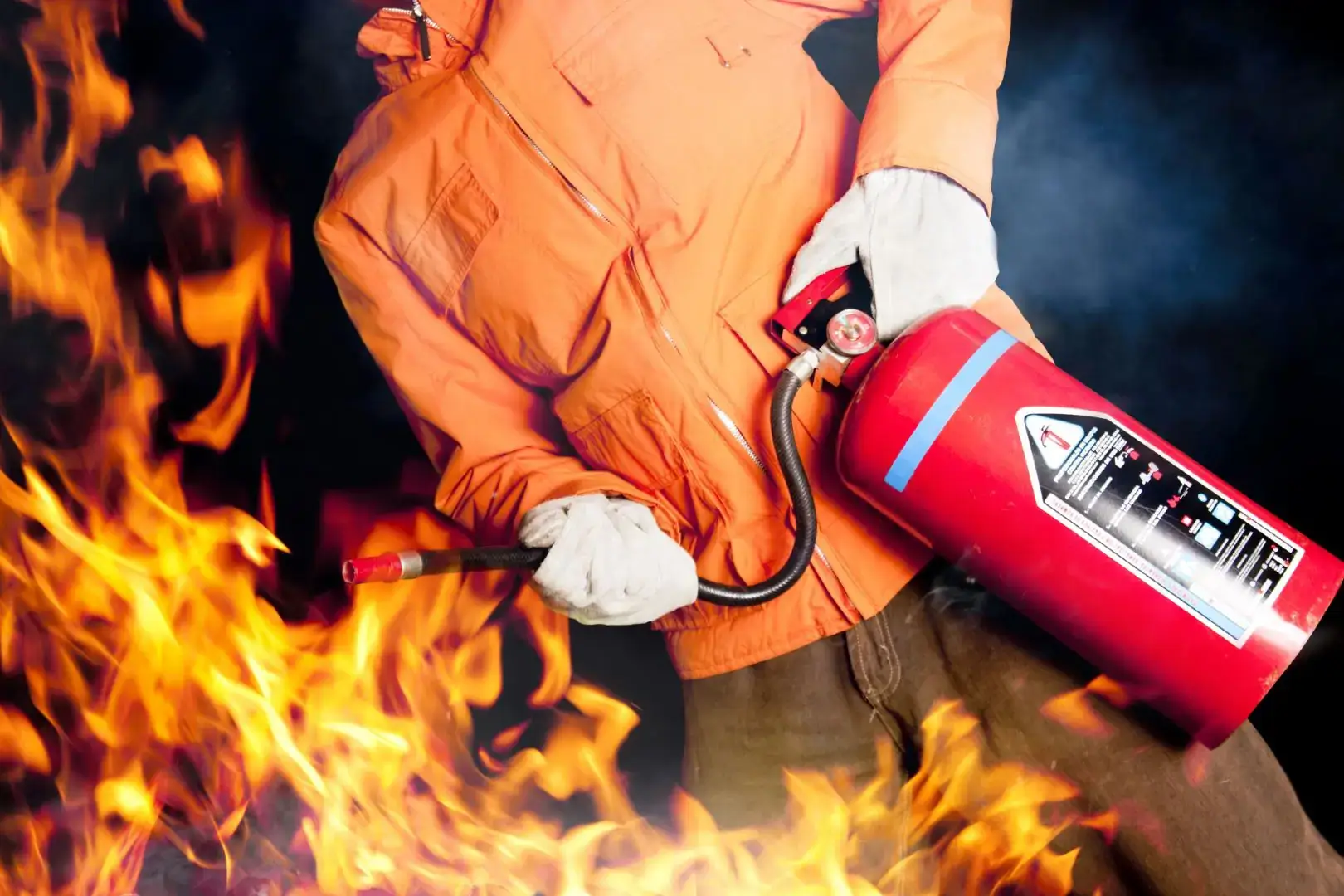Key Takeaways
- Document Everything: Start documenting the damage immediately after a house fire, including photos, videos, and receipts.
- Contact Your Insurance Provider Quickly: Initiate the claims process as soon as possible to avoid delays.
- Hire a Public Adjuster: Consider hiring a professional to help maximize your claim and navigate the claims process.
- Keep Track of Expenses: Record all additional living expenses while displaced from your home.
- Understand Your Policy: Familiarize yourself with the details of your insurance policy to avoid surprises during the claims process.
A house fire is one of the most devastating experiences a homeowner can face, leaving behind not just physical damage but also emotional trauma. As the smoke clears, the tiring task of filing an insurance claim begins.
The process can be overwhelming, especially when you’re already dealing with the loss of your home and possessions. This blog aims to to give you house fire insurance claim tips on how to successfully do it, ensuring that you receive the compensation you deserve.
1. Document Everything Immediately
After a house fire, your first step should be to document the damage. This means taking photos and videos of every affected area and item in your home. It’s crucial to start this process as soon as it is safe to do so because the details of the damage are freshest right after the incident. Include close-ups of damaged items, room-wide shots, and any structural damage.
Implications: Accurate documentation serves as concrete evidence when filing your claim, reducing the likelihood of disputes over the extent of the damage.
Insights: Many homeowners overlook small items or forget to take pictures of areas that seem less affected. However, even minor damage can add up, so be thorough in your documentation.
2. Contact Your Insurance Provider Quickly
Time is of the essence after a fire. Contact your insurance provider as soon as possible to inform them of the incident and begin the claims process. Delaying this step can result in complications, including slower response times from your insurance company and potentially lower payouts.
Implications: Early communication helps establish a timeline for the claim, ensuring that the process starts promptly and moves forward without unnecessary delays.
Insights: Some homeowners make the mistake of waiting until they have all the information before contacting their insurance provider. It’s better to start the process early and add details as they become available.
3. Understand Your Insurance Policy
Before filing your claim, it’s important to understand the specifics of your insurance policy. This includes what is covered, what isn’t, and the limits of your coverage. Familiarize yourself with terms like “actual cash value” versus “replacement cost,” as these will affect your claim.
Implications: Understanding your policy will help you set realistic expectations for your claim and prevent unpleasant surprises during the settlement process.
Insights: Policies can be complex, and the language used may not always be straightforward. Don’t hesitate to ask your insurance agent to clarify anything you don’t understand.
4. Hire a Public Adjuster
A public adjuster is a professional who can help you navigate the insurance claims process, ensuring that you get the maximum payout possible. Unlike the adjuster from your insurance company, a public adjuster works for you, not the insurer.
Implications: Hiring a public adjuster can significantly increase your settlement amount, especially in cases where the insurance company is trying to minimize their payout.
Insights: While a public adjuster does charge a fee (typically a percentage of your settlement), their expertise can often result in a much higher payout than you would receive on your own.
5. Keep Track of Living Expenses
If your home is uninhabitable after the fire, your insurance policy may cover additional living expenses (ALE). This includes costs like hotel stays, restaurant meals, and other expenses you incur while displaced. Keep detailed records and receipts for all these expenses.
Implications: Properly documenting your living expenses will ensure that you are fully reimbursed for the costs associated with being displaced from your home.
Insights: Some policyholders mistakenly assume that all costs will be covered without documentation. However, you must provide proof of expenses to receive reimbursement.
6. Don’t Discard Damaged Items
It might be tempting to start cleaning up and discarding damaged items, but it’s important to keep everything until the insurance adjuster has had a chance to inspect the damage. This includes items that are completely destroyed or beyond repair.
Implications: Discarding items before they are inspected can lead to disputes about the extent of the damage and may reduce your claim amount.
Insights: Store damaged items in a safe place until the adjuster can inspect them. If you must move or discard anything for safety reasons, take detailed photos beforehand.
7. Get Multiple Repair Estimates
Before agreeing to any repairs, get multiple estimates from reputable contractors. This will give you a better idea of the true cost of repairs and prevent you from being lowballed by the insurance company.
Implications: Multiple estimates ensure that you get a fair assessment of the repair costs, helping you make an informed decision about how to proceed.
Insights: Share these estimates with your insurance company, as they can serve as leverage in negotiating a fair settlement.
8. Understand Depreciation and Replacement Costs
Insurance policies often cover items based on their depreciated value rather than the cost to replace them with new items. It’s important to understand how depreciation will affect your claim and to be prepared to negotiate if necessary.
Implications: Knowing the difference between actual cash value and replacement cost can help you make the best decisions for your claim.
Insights: Consider purchasing additional replacement cost coverage if you don’t already have it, as it can significantly improve your payout.
9. Maintain Communication Records
Keep a detailed record of all communications with your insurance company, including phone calls, emails, and letters. Note the date, time, and content of each interaction, and follow up any verbal agreements with written confirmation.
Implications: Detailed records can help resolve disputes if there is a disagreement about what was said or agreed upon during the claims process.
Insights: If your insurance company seems unresponsive, written records can also be used to escalate the issue to higher authorities, such as state insurance regulators.
10. Consider Legal Assistance
If your claim is denied or if you feel the settlement offer is unfair, consider seeking legal assistance. An attorney who specializes in insurance claims can help you navigate the legal aspects of your claim and fight for a fair settlement.
Implications: Legal assistance can be a powerful tool in resolving disputes with your insurance company and ensuring that your claim is handled fairly.
Insights: While hiring an attorney can be costly, the potential increase in your settlement amount may outweigh the legal fees.
Conclusion
Filing a house fire insurance claim can be a complex and emotionally draining process. However, by following these 10 essential house fire insurance claim tips, you can navigate the process more effectively and increase your chances of receiving a fair settlement. Remember, your home and possessions are valuable, and it’s important to fight for the compensation you deserve. If you’re feeling overwhelmed or unsure about how to proceed, consider reaching out to a professional for help.
Don’t leave your house fire insurance claim to chance. Contact Insurance Claim Hero today for expert assistance and maximize your settlement with our proven house fire insurance claim tips.
FAQs
Q: How soon should I contact my insurance provider after a house fire?
A: You should contact your insurance provider as soon as it is safe to do so. Promptly starting the claims process helps avoid delays.
Q: What should I do with damaged items after a fire?
A: Do not discard any damaged items until after the insurance adjuster has inspected them. Take photos and store them safely.
Q: What are additional living expenses (ALE) in a house fire claim?
A: ALE covers the extra costs of living while you are displaced from your home, such as hotel stays and meals. Keep all receipts for these expenses.
Q: Is it necessary to hire a public adjuster?
A: While not mandatory, hiring a public adjuster can help maximize your claim and ensure that you receive a fair settlement.
Q: What should I do if my claim is denied?
A: If your claim is denied or if the settlement offer is too low, consider seeking legal assistance to explore your options.




